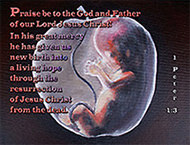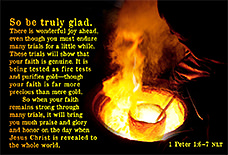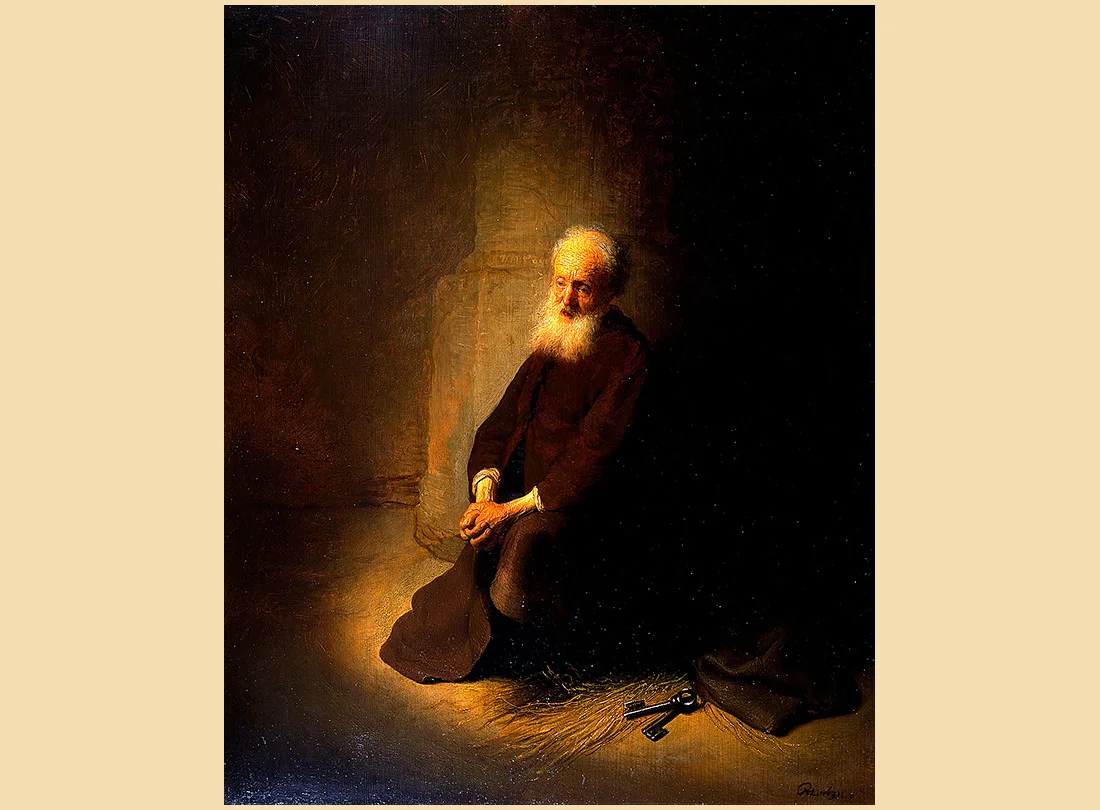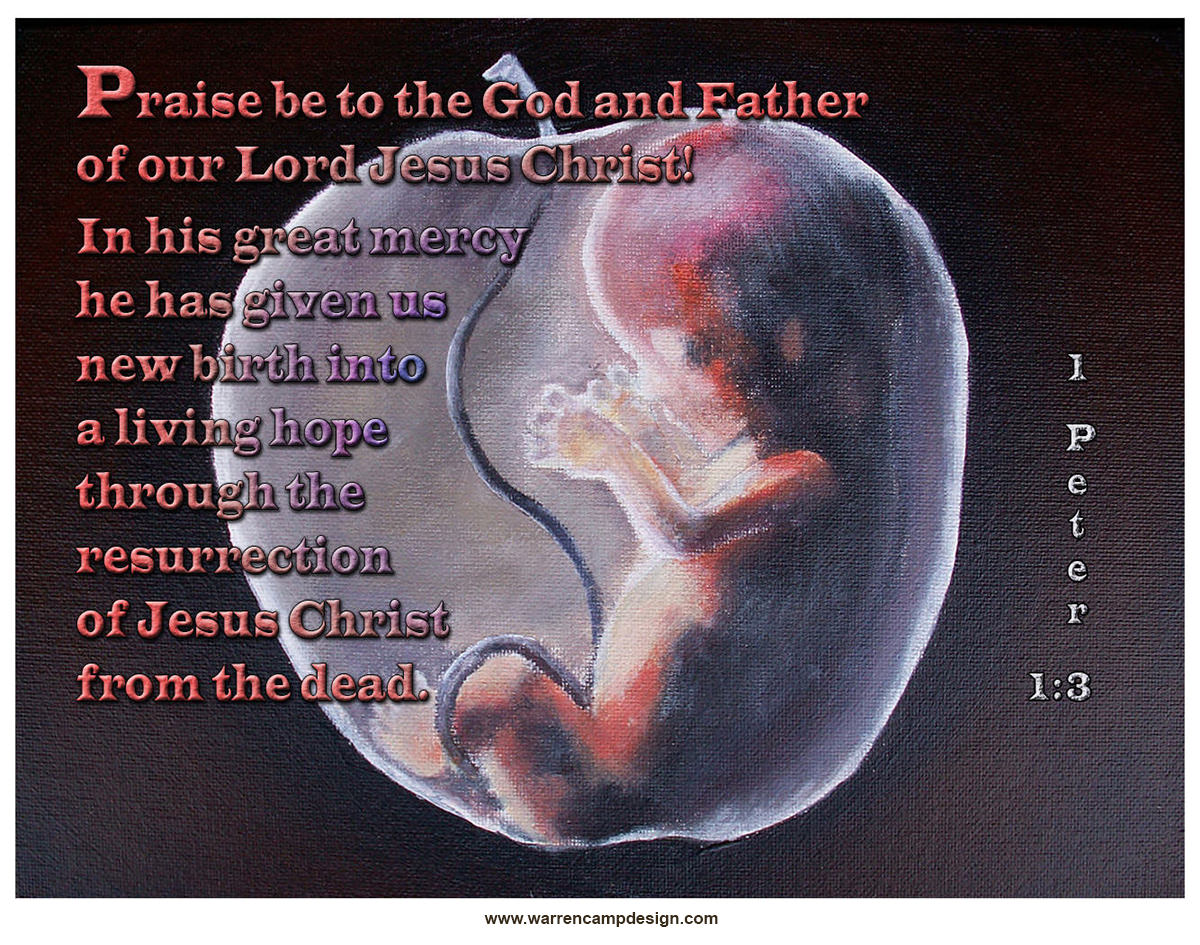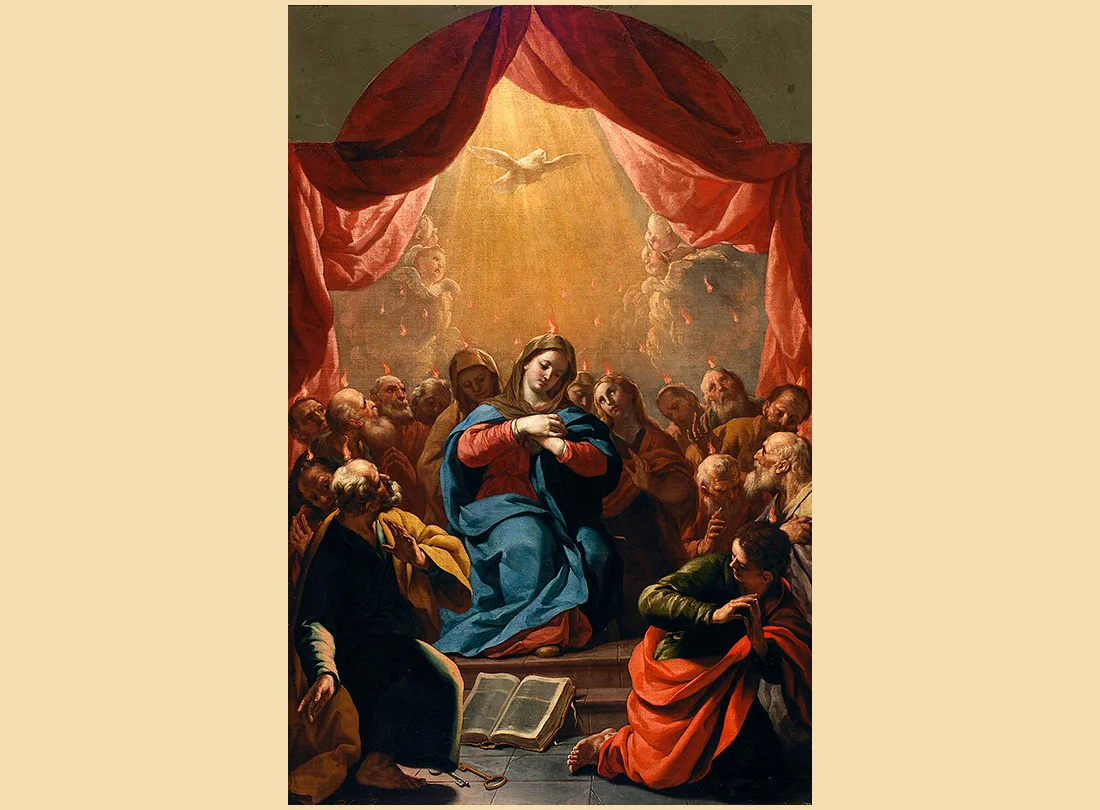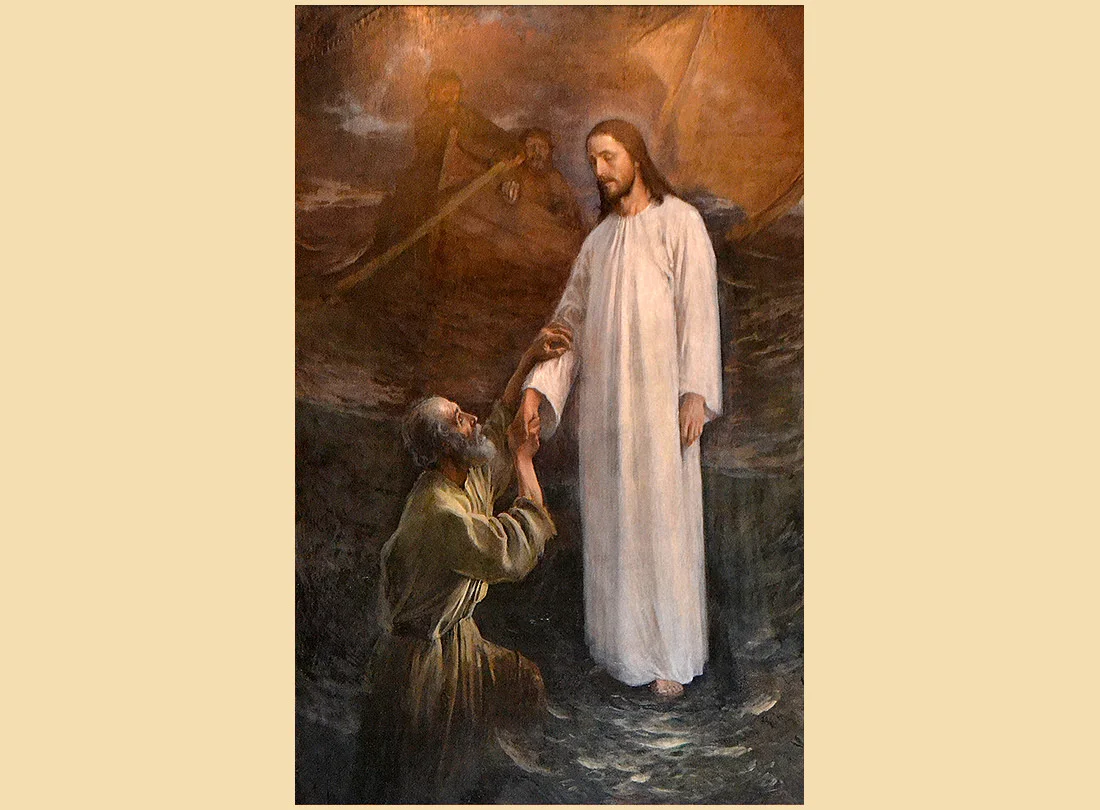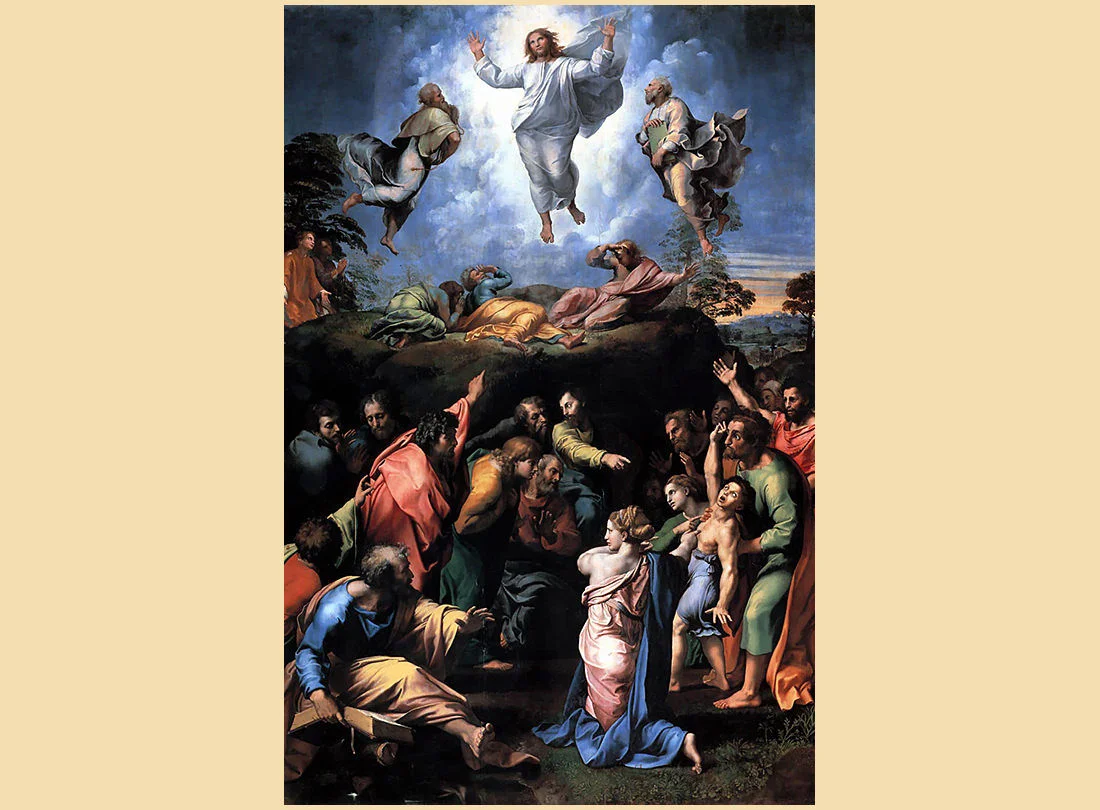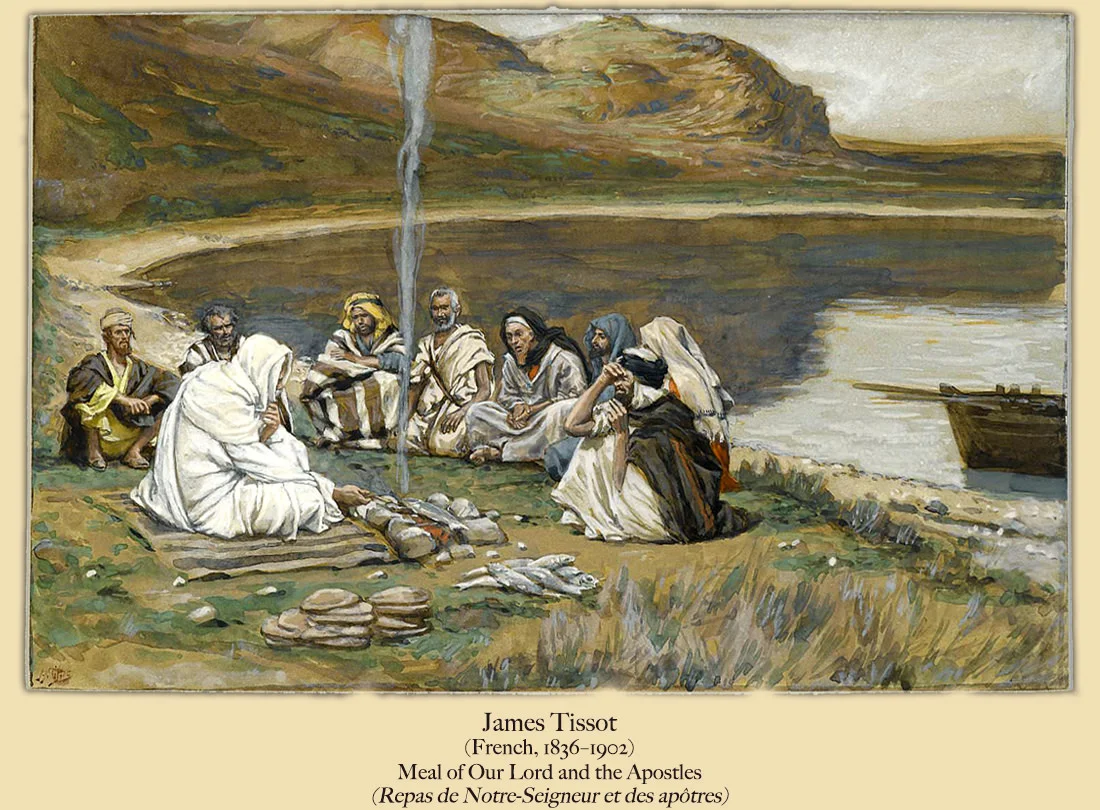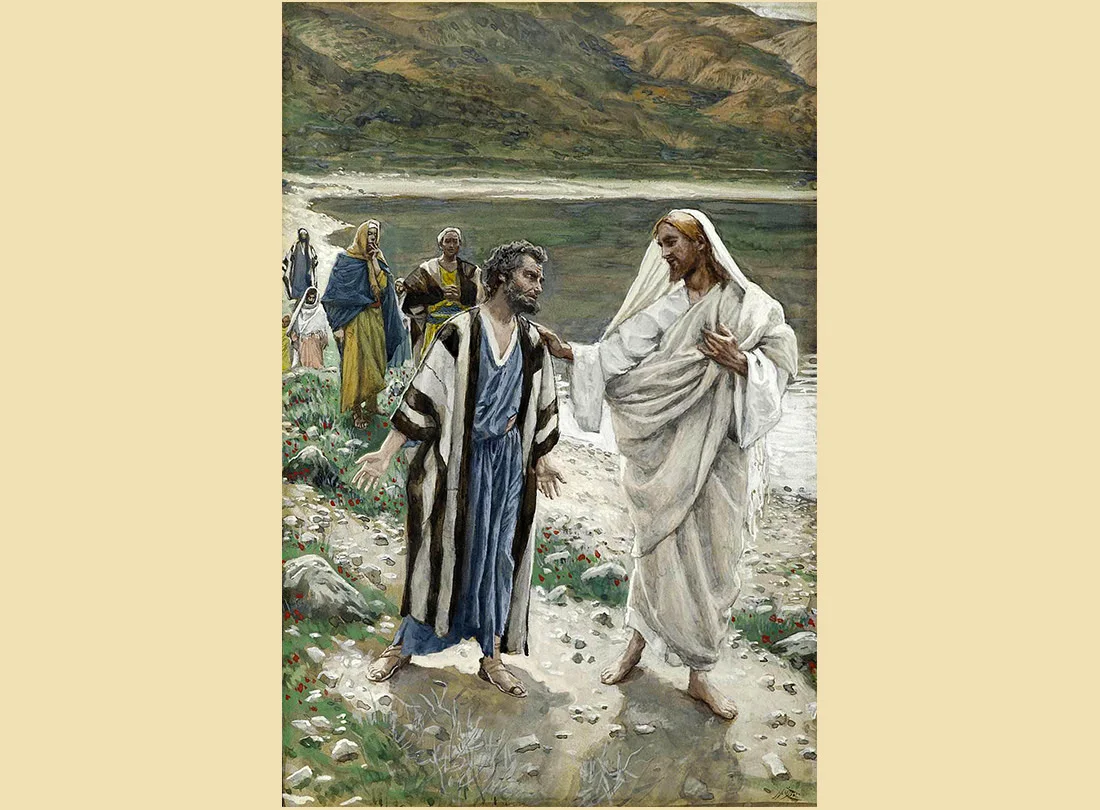
by Warren Camp
Brand-new series… Study on your own or join others in a group.
1 Peter 1:1–12 . . .
“God Gives Us New Birth and a Living Hope”
Before we begin our study of Peter’s first letter or epistle, think about the extraordinary experiences he’d had with Jesus. Which of those might he have said was “his greatest”? Was it…
† When Jesus called Peter from his fishing business to become one of his disciples
† On the day of Pentecost when Peter preached and 3,000 people were saved
† The night Peter saw Jesus walk on water and also walked a few steps
† The day Jesus called him a “rock” and gave Peter the keys to heaven
† On the Mount of Transfiguration as he looked up and saw Jesus shining
† The morning the resurrected Jesus invited Peter, “Come and have breakfast”
† That one day when Jesus told Peter three times, “Feed my lambs”
† The night of the Last Supper when Jesus washed Peter’s feet
Which do you think was Peter’s greatest, most memorable experience with Jesus?
As revealed in Warren’s introductory commentary, Peter’s first epistle was likely written to people who were enduring severe trials, possibly persecution, as he tells us in 1 Peter 1:6–7; 3:14; 4:1, and 12–19. He needed to encourage and comfort sufferers during their trials so they could eventually realize, appreciate, and be benefited by Jesus’ powerful story.
BibleProject makes it clear that persecution is a gift! “Apostles are chosen by God, and their persecution is actually a gift, because it offers them a chance to show others the surprising generosity and love of Jesus, which is fueled by hope in His return and victory over evil. Peter was hopeful that their imitation of Jesus and their demonstration of His upside-down kingdom will give power to their words as they bear witness to God’s mercy and show people the beautiful truth about Jesus.”[1]
Peter begins his first letter with a greeting and a God-honoring salutation, identifying himself as its author and an apostle of Jesus. He then asserted the authority to write this epistle, not through human wisdom but by the direct guidance of the Holy Spirit of Jesus. Next, he briefly stated the gospel doctrine of election. “According to the foreknowledge of God the Father,” the elect are those who’ve previously been picked, chosen, or selected. As such, the elect are set apart from those who haven’t been chosen by him.
1 1Peter, an apostle of Jesus Christ,
To God’s elect, exiles scattered throughout the provinces of Pontus, Galatia, Cappadocia, Asia and Bithynia, 2who have been chosen according to the foreknowledge of God the Father, through the sanctifying work of the Spirit, to be obedient to Jesus Christ and sprinkled with his blood:
Grace and peace be yours in abundance (1 Pet. 1:1–2 NIV).
When Peter writes, “through the sanctifying work of the Spirit,” he infers (as John Calvin does) that God had selected certain people, unconditionally, to be saved. Thereafter, the Holy Spirit would oblige them to accept the gospel message so they could be assured of being saved. The Holy Spirit frees believers from sin through the truthful word of God (John 17:17). Thus, with the Spirit of Jesus living within us, every Christian convert becomes sanctified.
Peter presents in vv. 1–9 a solemn formula of praise to God, extolling his mercies, especially to the persecuted. As William Barclay (a popular Scottish theologian; 1907–1978) said, “One of the outstanding things about this passage is that it takes words and conceptions, which had originally applied only to Jews, and applies them to Christians.”
Thank You, Father, for Your Work of Salvation (1:3–5)
Peter now praises God for the great favor shown to him and fellow believers. God had mercifully enabled them to be born again, thereby having a living hope that comes only through Christ’s resurrection, which is an essential part of salvation (Acts 4:12).
3Praise be to the God and Father of our Lord Jesus Christ! In his great mercy he has given us new birth into a living hope through the resurrection of Jesus Christ from the dead, 4and into an inheritance that can never perish, spoil or fade. This inheritance is kept in heaven for you, 5who through faith are shielded by God’s power until the coming of the salvation that is ready to be revealed in the last time (1 Pet. 1:3–5).
After Peter realized that he’d received God-given salvation, he immediately praised the “Father of our Lord Jesus Christ” (v. 3).
The basis for the Father’s work has its origins in him, not us. Thankfully, our hope and expectation of eternal life, together with forgiveness of sins, develop ultimately from Father God’s unmerited favor “in his great mercy.” When Peter writes, “He has given us new birth,” the term simply expresses being “born again.” One can only be born again by obeying the gospel (1 Peter 1:22–25).
Being born again “into a living hope through the resurrection of Jesus Christ from the dead,” Peter reminds us of the “living hope” we’re allowed to have only through Jesus’ resurrection. That said: His resurrection is inextricably connected to salvation! New Testament Scriptures affirm that, while Jesus’ crucifixion is essential to our salvation, so is his resurrection. If he hadn’t been raised from death, we could’t be saved; if he’d died on the cross without conquering death, Satan would have triumphed. But our Lord came back to life, proving he’s more powerful than Satan.
Next, Peter mentions our “inheritance” (v. 4). It’s extremely valuable and beneficial but he’s unable to describe it for us. What’s clear is that our inheritance “can never perish, spoil, or fade away.” The fading nature of earthly secular things differs from the eternal rewards that true believers in Jesus will receive. No matter the extent or type of wealth, power, popularity, honor, or success enjoyed on earth, it lasts only a brief moment. Thankfully, the saints’ inheritance, which is “kept in heaven for you,” will last forever.
There’s even more to think about our inheritance. Peter tells us in v.5 that “inheritors” are those who — “through faith” — are shielded and/or preserved, according to the gospel of Jesus. As a result of strong faith, all inheritors of this “new birth” will finally obtain lasting salvation. Although weak, often affected by trials, and always tempted, inheritors are forever protected because God mercifully exerted his power on their behalf.
Is There a Purpose for Our Trials? (vv. 6–9)
The recurring theme of 1st Peter is now introduced: How Christians are to relate to suffering. Having read vv. 3–5, Christians understand what Peter had written and probably felt relief, appreciation, and spiritual joy. However, Christians must accept the fact that they’ll suffer many troubles in their lives, which will likely make them feel sad for a while, but not forever. “In this you greatly rejoice” speaks to God’s omnipotence. When we become grieved by various trials, it’s comforting and reassuring to know that powerful Christ will guard and enable us when our faith in him gets tested by fiery trials.
6In all this you greatly rejoice, though now for a little while you may have had to suffer grief in all kinds of trials. 7These have come so that the proven genuineness of your faith — of greater worth than gold, which perishes even though refined by fire — may result in praise, glory and honor when Jesus Christ is revealed. 8Though you have not seen him, you love him; and even though you do not see him now, you believe in him and are filled with an inexpressible and glorious joy, 9for you are receiving the end result of your faith, the salvation of your souls (1 Pet. 1:6–9).
God has a purpose for our trials and the heavy grief they often cause. Peter has said a lot in these four verses: We’re able to rejoice today, even when we suffer, because of our inheritance. Suffering certainly involves grieving. Trials last only “for a little while” compared to our inheritance that never fades away. When we suffer, our faith gets tested the same way that gold gets purified by fire. In the end, we’ll be privileged to receive praise, honor, and glory when Jesus reappears. And, as valuable as gold is, the value of faith is far greater.
Our God refines us with afflictions, trials, and tribulations, the heat of which separates impurities such as unforgiveness, strife, bitterness, anger, envy, and so forth, from the character of God in our lives. One day, gold’s value will perish, regardless of its purity. But faith will endure, thereby enabling born-again believers to receive their eternal reward.
When Peter writes in v. 8 “Though you have not seen him, you love him,” he knew that “though he had seen Jesus (before and after the resurrection), most every Christian in the early church hadn’t seen him. Nevertheless, they loved Him. He was no less real because they hadn’t seen Him. As well, “You are receiving the end result of your faith” (v. 9) specifically relates to Jesus’ return and your soul’s ultimate salvation. Until we see the God we serve, we must endure trials, facing them with faith and joy.”[2]
True faith is based upon Scripture. In it we’re to embrace its eternal principles. Genuine belief trusts that God is who he says he is and that he’ll do everything that he’s promised. It’s important for us to share our faith with others: Sure, we can verbally explain our beliefs, but we can also model a godly lifestyle, which can be more influencing. Consistency and perseverance are also essential facets of our faith. We should continually use our trials to demonstrate how a godly person responds to them while living out our faith visibly.
Life certainly isn’t easy. However, we have a loving God who not only understands our suffering but has also chosen to experience it himself. Because he did, we can now claim participation in the ultimate victory over every trial of life.
Old Testament Prophets Testified about Jesus (vv. 10–12)
Peter tells us that the prophets who prophesied had diligently sought to understand the events and timetable in which Christ Jesus would suffer and then be glorified. Angels, too, wanted to learn about these things but couldn’t know of them until the time of fulfillment.
10Concerning this salvation, the prophets, who spoke of the grace that was to come to you, searched intently and with the greatest care, 11trying to find out the time and circumstances to which the Spirit of Christ in them was pointing when he predicted the sufferings of the Messiah and the glories that would follow. 12It was revealed to them that they were not serving themselves but you, when they spoke of the things that have now been told you by those who have preached the gospel to you by the Holy Spirit sent from heaven. Even angels long to look into these things (1 Pet. 1:10–12).
It wasn’t Peter’s intention to prove the truth of what he taught about salvation by documenting how it agreed with prophets’ prophesies; rather, he endeavored to hearten and uplift his afflicted readers by confirming the importance and comprehensive magnificence of that salvation for which they’d been burdened. The Old Testament prophets were eager to visualize and experience the grace of the upcoming new covenant (v. 10). Although they knew much of what was to come, a lot was hidden from them.
In principal, Peter states in these three verses that God’s plan for mankind’s salvation had been progressively revealed through the centuries. In the olden days, people knew nothing about God’t grace, which was able to provide salvation for every believer; thankfully today we know of it through New Testament Scriptures such as Titus 2:11 and Ephesians 3:3–5.
For ages, God’s salvation plan had been concealed from even his greatest prophets and angels. Consider yourself blessed to be able to know the reality and truth about salvation, now that it’s been fully revealed through Christ Jesus, as documented by the gospels.
- Q. 1 Do you sometimes feel overwhelmed by your suffering? When? Why?
- Q. 2 Do you wish you could live in the “good old days” when God spoke directly to men?
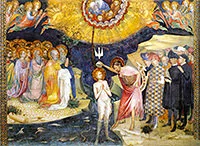
‘John the Baptist Baptizes Jesus’
Click to open “Peter Masterpieces.”
Summary Video: “First Peter”
† Watch this overview video of First Peter created by BibleProject.
Warren’s New “Peter Masterpieces” Photo Album
† View several classic paintings of Saint Peter by art world masters: Rembrandt, Michelangelo, Da Vinci, Rubens, Goya, El Greco, Raphael, Masaccio, Giotto, Correggio, Tintoretto, Caravaggio, Veneziano, Tissot, Duccio, Fra Angelico, Galle, Dürer, Palomino, and many more.
1 Peter 1:1–12
New International Version (NIV) or view it in a different version by clicking here.
— Listen to chapter 1, narrated by Max McLean.


